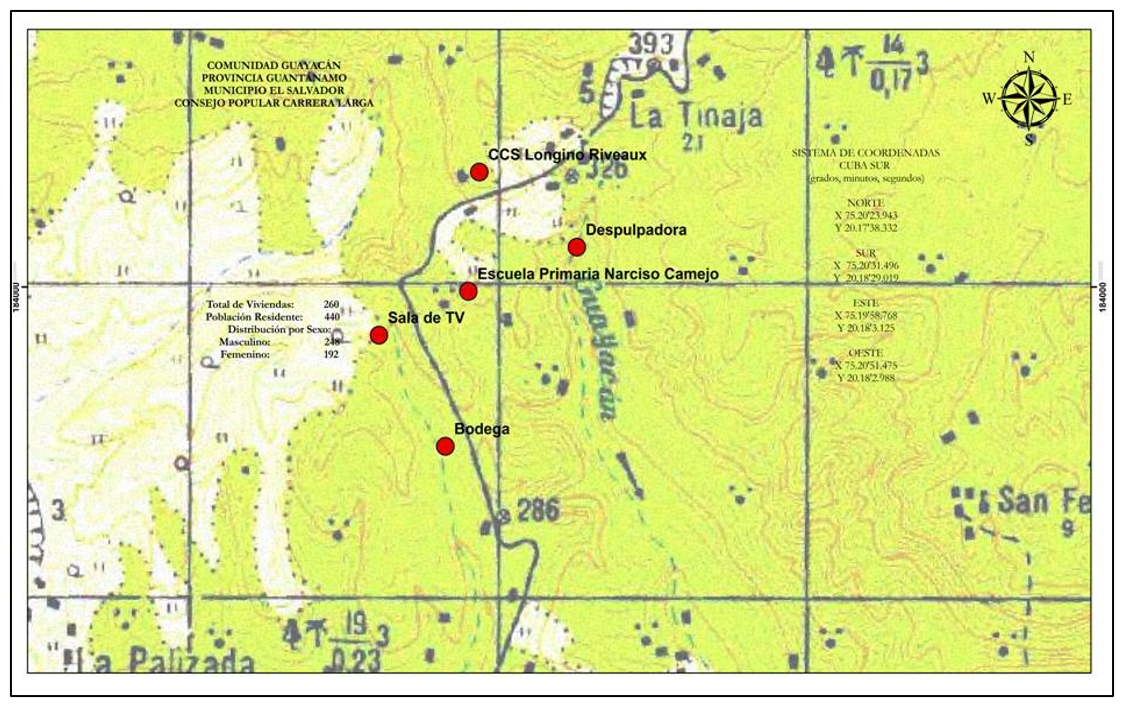Visualization of rural women in the use of agricultural biodiversity in Guantánamo
Main Article Content
Abstract
The research was developed with the purpose of visualizing the role of rural women in the use of agricultural biodiversity in the community of Guayacán in the municipality of El Salvador in the province of Guantánamo, Cuba. The Action-Participation Research was used, which was articulated with the theoretical and methodological conception of popular education. The important role played by rural women in the use and conservation of agricultural biodiversity was visualized in the community of Guayacán. In exchange with the women of Guayacán, they referred to the importance of strengthening their capacities through the knowledge of new techniques for empowerment from the agricultural activities they carry out, they consider economic autonomy and decision-making to be very valuable. The direct impact of these women on productive and economic activities in the context of the cooperative and the community was revealed. In addition, the gaps related to the gender approach were identified and activities were designed that can contribute to strengthening participation from the local level.
Article Details

This work is licensed under a Creative Commons Attribution-NonCommercial 4.0 International License.
References
Barrero Ramírez, A. M., Imbach, A., & Navarro Monge, G. A. (2023). Sistematización de la incorporación del enfoque de género e inclusión en proyectos del Programa FAO UE FLEGT implementados en Colombia y Honduras. Economía, Política y Gobernanza del Ordenamiento de Recursos Naturales.
Bedoya Jaramillo, M., & Velásquez Correa, L. (2020). La mujer rural: Un análisis de las condiciones socioeconómicas y participación laboral de la mujer rural en Colombia (Bachelor's thesis, Universidad EAFIT).
Bélanger, J., & Pilling, D. (2019). The state of the world's biodiversity for food and agriculture (pp. xli+-529).
Bombino, Y. (2021) Cuba: ¿Dónde están las mujeres rurales? Amecopress directorio suscripciones archivo Información para la igualdad. Redacción SEMlac. La Habana, Cuba.
Bustillos, G. (1999). Investigación acción participativa. Asociación de Pedagogos de Cuba. Ciudad de la Habana pp, 75.
Casas, A., & Vallejo, M. (2019). Agroecología y agrobiodiversidad. Crisis ambiental en México, 103.
FAO (2005) La mujer y la seguridad alimentaria sostenible, https://www.fao.org/4/x0217s/x0217s03.htm
FAO. (2018). The State of the World’s Biodiversity for Food and Agriculture , J. Bélanger & D. Pilling (eds.). Evaluaciones de la Comisión de Recursos Genéticos para la Alimentación y la Agricultura de la FAO. Roma. (disponible en: http://www.fao.org/3/CA3129EN/CA3129EN.pdf)
FAO (2023). Mujeres, hombres y biodiversidad. www.fao.org/sd/LINKS/GEBIO.hTM
García A., Mirian., B., Yenisei, Anaya C, Betsy, Echevarría D. (2019). Miradas a la condición y posición social de las mujeres rurales. web@radiorebelde.icrt.cu.
García, L. C. H., & Alfonso, F. D. (2024). Sistemas agroalimentarios, seguridad alimentaria y desarrollo rural: una mirada a la situación de las mujeres rurales en Colombia. Revista Controversia, (222), 129-179.
García Santos, L., Ruíz Martínez, A., & Castillo Leal, M. (2019). POLÍTICAS PÚBLICAS Y MUJERES RURALES EN MÉXICO.
Hernández-Sampieri, R., Fernández, C., & Baptista, P. (2014). Metodología de la investigación (Vol. 6, pp. 102-256). méxico: mcGraw-Hill.
Inerarity, M. (2017). Manual de técnicas de participación para el trabajo grupal. La Habana: Editorial Caminos.
Merino-Pérez, L. (2019). Crisis ambiental en México: ruta para el cambio. (No Title).
Pardo, M. (2022) ponencia "Inventario Español de los Conocimientos Tradicionales Relativos a la Biodiversidad" Congreso Internacional de Etnobotánica. Blog etnobotánica. pp. 10
Silva-Jiménez, Y. P., Durán, C. A., Concha, C. M., & Otero, J. D. (2020). Experiencias exitosas de asociatividad: un caso de empoderamiento de las mujeres rurales y equidad de género en cadenas de valor agrícola. Revista novedades colombianas, 15(1), 71-96.

